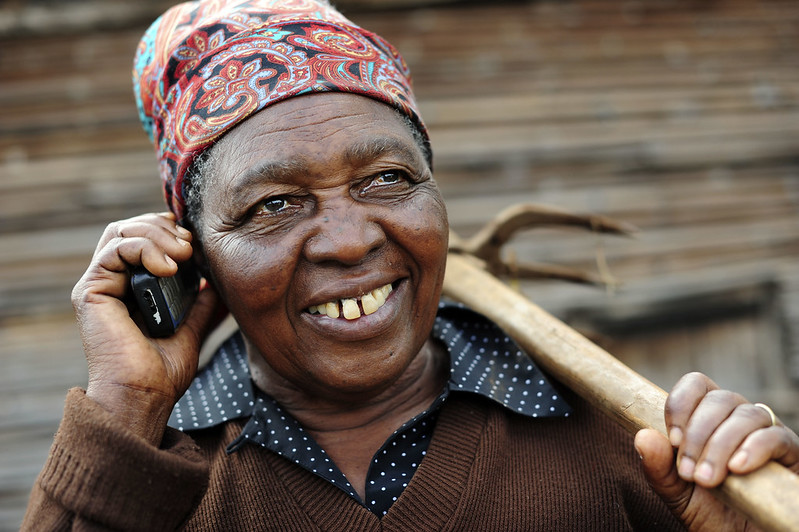Conference
8th AgriFin Learning Event (ALE)
SPARC at the 8th ALE: Bringing together tech providers, policy makers, firms and investors to find solutions to scaling climate-smart tools, digital agriculture, fintech and innovation in drylands.
Event date and time 9:00am EAT

Supporting Agtech, fintech development and digital climate information services is key to strengthening rural economies and building resilience in drylands across Africa. This year’s 8th AgriFin Learning Event (ALE) in Nairobi, Kenya, took place from Tuesday, October 15 to Wednesday, October 16, and focused on ‘Enabling Rural Economy: Creating lasting impact for the digital ecosystem in Africa’.
The SPARC team led a series of events bringing together tech providers, policy makers, entrepreneurs and investors to lead conversations about the barriers faced, and the opportunities to be harnessed, when scaling climate-smart tools, digital agriculture, fintech and innovation in rural regions.
Day One: Tuesday, October 15 – Theme: Pathways to Scaling Digital Agricultural Finance
Livestock generate significant value in Gross Domestic Product, livelihoods, and food systems. Despite this, the sector is disproportionately underfinanced across Africa. In Kenya alone, private-sector investments in agriculture continue to grow steadily, but the analogue in livestock is negligible. Even with these barriers, demand for livestock products continues is growing, as is investor appetite. In our sessions on Day One, with our partners Gatsby Africa, SPARC member organisation the International Livestock Research Institute (ILRI); Spotlight - a project by Global Livestock Advocacy for Development (GLAD); AgThrive, and Northern Rangelands Trust Trading, we explored how we can bridge this gap in finance.
Our sessions drew on research on ‘Unlocking investment for the Kenyan livestock sector’, and included a roundtable on ‘Insurance Pathways’ on Tuesday, October 15 and a masterclass on ‘Drylands financing: Livestock sector' on Tuesday, October 15. Watch the masterclass here:
{"preview_thumbnail":"/sites/default/files/styles/video_embed_wysiwyg_preview/public/video_thumbnails/G1zSZJxMap4.jpg?itok=M7ClKgDy","video_url":"https://youtu.be/G1zSZJxMap4","settings":{"responsive":true,"width":"854","height":"480","autoplay":true,"title_fallback":false},"settings_summary":["Embedded Video (Responsive, autoplaying)."]}
Read this blog on Day One's masterclass, by our partners ILRI, on potential solutions to encourage investment in drylands and dispelling myths about arid and semi-arid regions.
Day Two: Wednesday, October 16 – Theme: Pathways to Scaling Digital Agricultural Information Services
SPARC convened a series of events on ways to make Climate Information Services (CIS) more relevant, accessible and reliable for pastoralists. It joined its partners from the Center for Research and Development in Drylands (CRDD), Jameel Observatory, AfriScout and Kenya Meteorological Department, to draw on new SPARC evidence on ‘How Climate Information Services (CIS) can help pastoralists in the Horn of Africa’.
Panellists explored key questions including: What cases can we learn from that highlight ways to successfully integrate indigenous knowledge and tailoring to local context in climate information? What are women's particular needs for climate information? Given infrastructure, connectivity and language barriers, how can digital services be embedded with other channels to most effectively reach pastoralists?
Our sessions included a roundtable on ‘Standardised access to Climate Information Services (CIS) across partners’ on Wednesday, October 16 and a masterclass on ‘Climate information services for pastoralists’ on Wednesday, October 16. Don't miss the masterclass here: